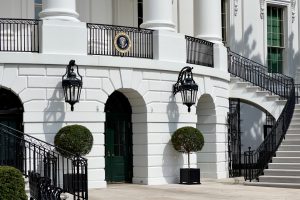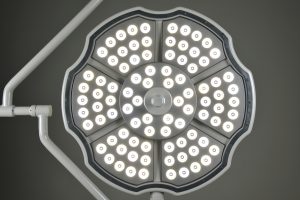On June 2, the Department of Justice, Antitrust Division, agreed to its first settlement of a merger challenged under the new administration, less than one week after the Federal Trade Commission (“FTC”) entered into its first such settlement. The consent decree will require the divestiture of three businesses and will allow Keysight Technologies, Inc. to complete its proposed $1.5 billion acquisition of Spirent Communications plc.
In February, Assistant Attorney General Abigail Slater previewed that the new administration might “take a different approach than the prior Antitrust Division on settlements in merger cases where effective and robust structural remedies can be implemented without excessively burdening the Antitrust Division’s resources.” The Keysight/Spirent consent decree is consistent with that promised approach and a helpful development for companies interested in transactions involving largely complementary businesses.
The Merger
Keysight is a U.S. company that the Department of Justice press release describes as offering “design, emulation, and test solutions across a range of industries, including commercial communications; aerospace, defense, and government; and electronic industrial.” Spirent is a UK company that offers “automated test and assurance solutions for networks, cybersecurity, and satellite positioning.” The parties are global providers of specialized equipment used to test various components of communications networks and measure and validate network performance.
Network equipment manufacturers, communications network operators, and cloud computing providers purchase and use this testing equipment to ensure their products and networks operate effectively and securely under normal conditions and withstand interruptions, cyberattacks, interference, and high user volume. Lab testing ensures that communications networks can support updated devices, comply with revised industry standards, and maintain data security as the cybersecurity landscape changes.
According to publicly available information, the parties notified the UK’s Competition and Markets Authority, which raised no objections to the transaction.
Theories of Harm
According to the Antitrust Division’s complaint, the combined companies would dominate the U.S. markets for high-speed ethernet testing, network security testing, and radio frequency (“RF”) channel emulators. The parties combined account for 85 percent of the market for high-speed ethernet testing, at least 60 percent of the market for network security testing, and more than 50 percent of the market for RF channel emulators. Allegedly, Keysight and Spirent are each other’s closest competitors in these markets and compete head-to-head to develop and sell the equipment.
Although the proposed transaction was cleared by the UK antitrust authority, the U.S. agency alleged that it would substantially lessen competition for each of those three types of communications testing and measurement equipment. The Antitrust Division contended that the reduced competition would likely result in higher prices, lower quality, and reduced innovation.
The Settlement
With only one exception, the prior administration did not accept divestiture or behavioral remedies in merger challenges, and the agency was vocal about its view that divested assets are not likely to compete as robustly as the premerger firms. In 2023, however, under pressure from the court, the Antitrust Division accepted its one and only merger settlement. That settlement also included a number of unusual requirements aimed at allowing the Antitrust Division to monitor and police the effectiveness of the remedy.
The Keysight/Spirent consent decree will require the divestiture of Spirent’s high-speed ethernet testing business, network security testing business, and RF channel emulation business. According to Slater, the settlement “secures enforceable commitments from the merging parties, provides transparency into the Antitrust Division’s efforts to resolve merger investigations, and gives the public an opportunity to comment as provided by statute.”
The willingness of the FTC and the Antitrust Division to consider structural or divestiture remedies is a meaningful shift in approach. The recent settlements do not signal that “anything goes,” but they do allow companies contemplating transactions of predominantly complementary businesses the opportunity to achieve the benefits of such combinations. Companies will need to assess the extent of any overlaps, the number of meaningful competitors, the nature of the competition among all the competitors, and whether divestiture of one party’s overlapping business could be successful and substantially replace lost competition.

















